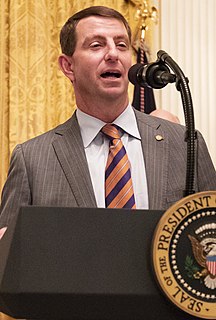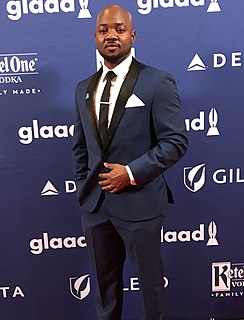A Quote by Asia Kate Dillon
I'm really interested in going back in to the history of non-binary people and seeing how many people in history were non-binary but that didn't know it themselves or because we didn't have the language, couldn't talk about it. I know how that felt being a young person not having that language.
Related Quotes
Trust me, people that know me know I ain't perfect, but I do try to live my life in a way that hopefully can be pleasing to my maker because I know I'm going to meet Him one day, and He's not going to pat me on the back and talk about how many wins I had or how many Coach of the Year trophies we got or how much money I made.
Oral history is a research method. It is a way of conducting long, highly detailed interviews with people about their life experiences, often in multiple interview sessions. Oral history allows the person being interviewed to use their own language to talk about events in their life and the method is used by researchers in different fields like history, anthropology and sociology.
When people talk to me about the digital divide, I think of it not so much about who has access to what technology as about who knows how to create and express themselves in the new language of the screen. If students aren't taught the language of sound and images, shouldn't they be considered as illiterate as if they left college without being able to read and write?
There's this belief sometimes from people who haven't lived the trans experience that's just like, 'You should tell everyone. You owe it to them.' But the truth is, you don't know how people are going to respond. And many people don't even have the language to talk about what their trans experience is, or what it could be.
My obsessions stay the same - historical memory and historical erasure. I am particularly interested in the Americas and how a history that is rooted in colonialism, the language and iconography of empire, disenfranchisement, the enslavement of peoples, and the way that people were sectioned off because of blood.
I think people crave those meaningful situations, stuff about faith, identity, dilemmas of live paradoxes in our souls. It's going back to a time where lives were really defined by history, and also how you behave in the face of history. It's kind of interesting to go back to that simpler humanity, simpler but deeper.
Language is such a powerful thing. After the earthquake, I went to Haiti and people were talking about how [they] described this feeling of going through an earthquake. People really didn't have the vocabulary - before we had hurricanes. I'd talk with people and they'd say, "We have to name it; it has to have a name."
I mean, what's thematic? How to put it? Going back to, like, 1980, when I started writing poetry. Language itself became an issue. I'd even think about font as an aspect of text, you know, how something looks on a page. A lot of this is the product of a very solitary existence, it's like, language, I mean, you know. A lot of time spent alone in the creation of all of this stuff.



































